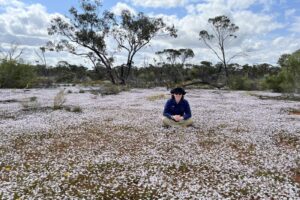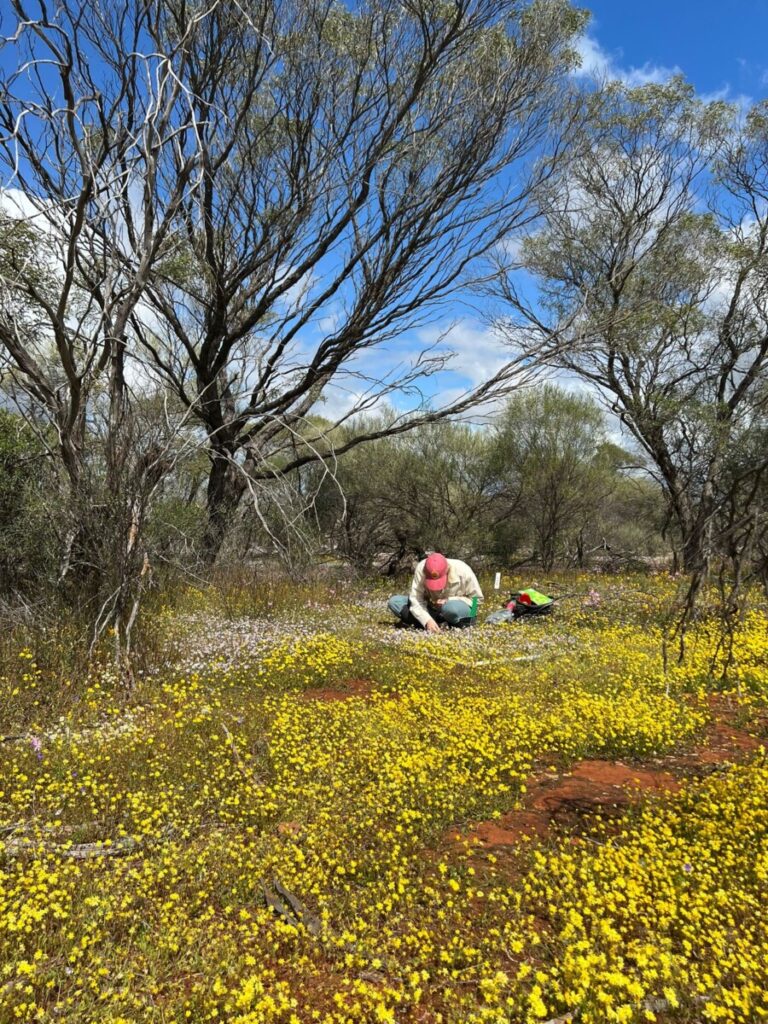November

October concluded another busy field season for many in our research group studying in the York gum- Jam woodlands of southwest Western Australia. This season was one of the driest winter-spring periods on in years with the wildflower season responding accordingly, with annual plants in low abundance and of much shorter stature than normal. Despite the challenges of a dry season, Courtney has completed her first field season, mapping the location of 18,000 annual plants and collecting seeds from 7,000 of these. Manuel has completed his last field season, collecting seeds and plant tissues samples of Waitzia acuminata to look at how fragmentation and isolation can affect the genetic diversity of plant populations. Winnie has also had a successful field season collecting root traits for over 100 annual plant species.
And a big congratulations to Dr. Alexandra Catling too whose thesis has been accepted and is currently working as a postdoctoral research fellow with the Forest Research Institute at University of the Sunshine Coast – congrats Ali!
August
As several members of the Mayfield Lab prepare for another season of fieldwork in the annual wildflower communities of Western Australia, we welcome the newest member to the lab group, Courtney Taylor.
Courtney has recently completed her honours at La Trobe University exploring long-term trends in semi-arid grasslands in Victoria. Courtney’s project will explore the use of horizontal networks to understand how species interactions change across heterogeneous spatial and temporal environments. Courtney will be co-supervised by Dr. Malyon Bimler.
Several members and alumni of the Mayfield Lab presented their research recently at the Ecological Society of Australia conference in Darwin in early July.
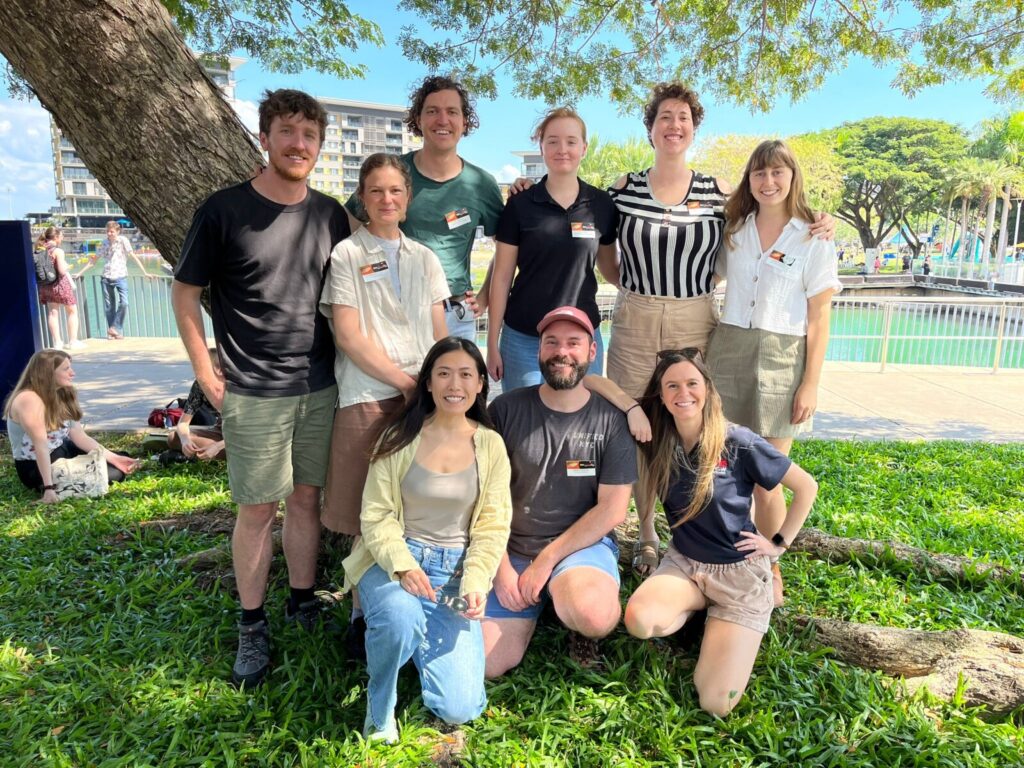
June
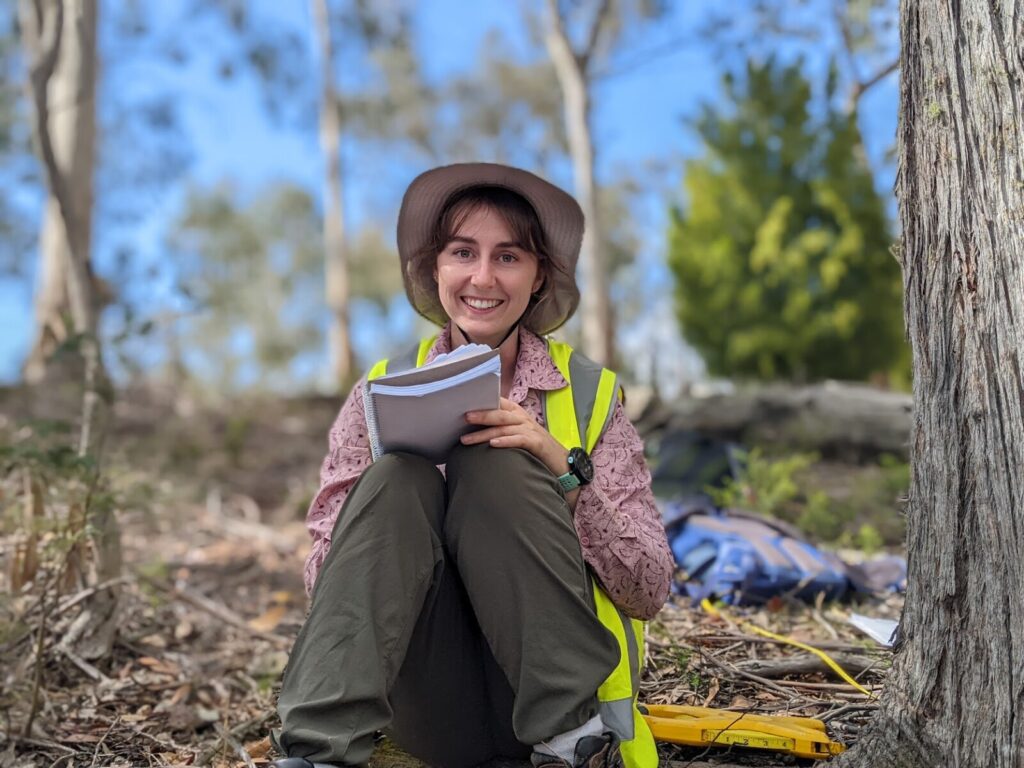
Ali Catling 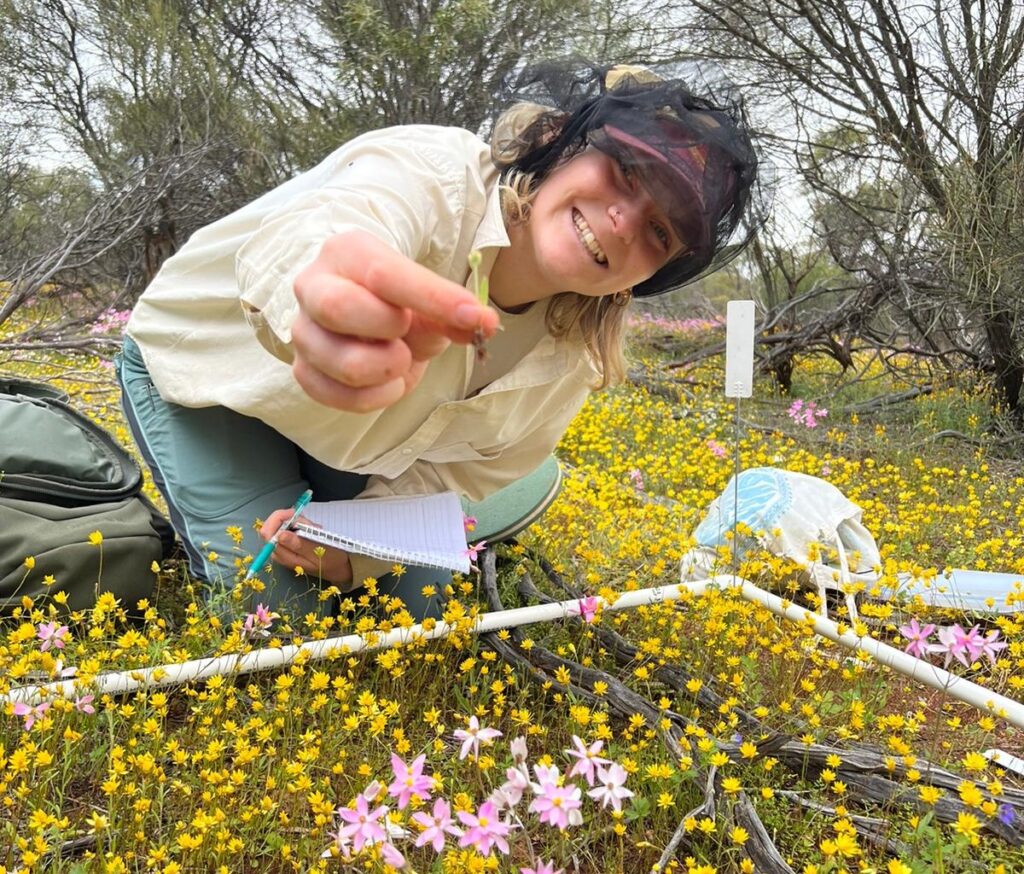
Aurora Robertson
A big congratulations to PhD student Ali Catling and honours student Aurora Robertson, who have both recently submitted their respective theses!
Ali’s research explores demographic responses to plant-plant interactions along resource gradients in natural systems. Ali has worked tremendously hard and collected great data across several projects from patterns of tree growth in wet Tasmanian forests to vital rates of annual wildflowers in semi-arid woodlands of Western Australia. Ali’s research contributes greatly to our understanding of how plant performance varies with environmental conditions. Well done, Ali! The lab group will certainly miss you as you move onwards and upwards!
Aurora’s research investigated patterns of insect herbivory in semi-arid wildflower communities of southwest Western Australia. Aurora’s project explores how the degree and trends in invertebrate herbivory along biotic and abiotic gradients within York gum-Jam woodlands. Her data are being contributed to the global Bug-Net program. Aurora’s thesis explores how plant species richness can mediate herbivory within plant communities. Congrats Aurora – all the best on your future adventures!
February
As the Mayfield Lab is getting ready to celebrate a year at the University of Melbourne, we are excited about the addition of three new Masters and one honours student to our team. Beginning this month, Clancy, Matthias, Ruby and Tom will join our lab working under the supervision of Margie on a variety of topics from native bee diversity to plant-plant interactions and impacts on co-existence.
George (Clancy) Lester – For his Masters, Clancy is working with Dr. Rachele Wilson and Traditional Owners in east Arnhem Land to understand the status and trends in native bee diversity and investigate how climate change may be causing negative impacts to native bees and stingless bee honey production.
Ruby Nolen-Burnett – For her Masters, Ruby is working with PhD candidate Winnie Siu and will be exploring underground mechanisms that mediate plant coexistence in annual wildflower ecosystems. This will involve investigating how soil microbiota can affect the strength and direction of plant-plant interactions.
Matthias Haslauer – For his Masters, Matthias is woking with PhD candidate Lisa Buche exploring experimentally applied seed dispersal limitation alters patterns of community diversity. Matthias will be expanding on a 8-yr long experiment in annual wildflower communities and exploring the patterns of diversity in dispersal limited environments through the lens of functional trait ecology.
Tom McMahon – For his Honours, Tom is working with PhD candidate Ali Catling exploring the interactions between Eucalyptus tree growth and understory diversity and condition in four common Tasmanian forest Eucalyptus species.
